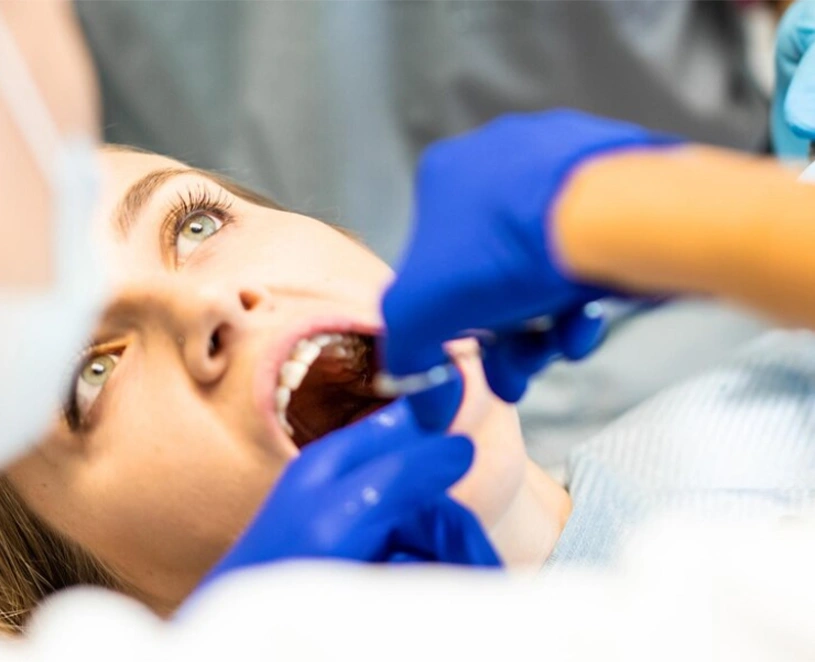How Does Gum Recession İmprove?
How does gum recession improve? The treatment of receding gums depends primarily on the cause of the problem. If the recession is caused by poor oral hygiene, regular tooth brushing and flossing can help. Gum health can be supported by using antibacterial mouthwashes and special toothpastes recommended by dentists. If necessary, the dentist supports the process with professional treatments such as root resurfacing or plaque removal.
How does gum recession improve? The most accurate answer to this question can only be given by a dentist. If gum recession has progressed, surgical interventions may be required. Gum grafting or regenerative procedures can be applied to regenerate receding gum tissue. In addition, it is important for the patient to quit smoking and pay attention to their diet to protect their gum health. Including foods rich in vitamin C and omega-3 in the diet can strengthen gum tissues. It can accelerate the healing process. With expert follow-up and regular check-ups, gingival recession can be managed to a great extent.
How to Stop Gum Recession?
Gum recession is a condition in which the gums move away from the tooth roots over time, exposing the teeth. This problem not only creates an aesthetic problem, but can also negatively affect dental health. Understanding gum recession is important to answer the question of why it happens and to apply the right interventions.
Gum recession usually shows the following symptoms:
- Teeth appear longer than normal
- Sensitivity and pain in the gums
- Increased sensitivity to cold or hot foods and drinks
- Bleeding when brushing teeth or eating
- Increased gaps between teeth and gums
When these symptoms are recognized, it is necessary to take immediate action to stop the progression of gum recession.
Different methods can be applied to correct gum recession. In the early stages, cleanings by a dentist can stop the progression of the problem by removing plaque and tartar build-up. In more serious cases, surgical interventions such as gum grafting or flap surgery may be required. These procedures help regenerate gum tissue and replace lost tissue.
To stop gum recession, it is necessary to first consult a dentist and apply appropriate treatment methods. However, attention should be paid to hygiene habits such as regular brushing, flossing and mouthwashes to maintain gum health.

How is Gingival Recession Treated?
Gum recession is a condition that seriously affects dental health and usually results in the exposure of the root parts of the teeth. This problem can cause both aesthetic concerns and tooth sensitivity. Tooth pain and other discomfort caused by gum recession can lead to other oral health problems if left untreated.
Treatment for receding gums varies depending on the severity of the recession and the underlying causes. In mild cases, professional teeth cleaning and proper oral hygiene habits can solve the problem. In more advanced cases, the following treatment methods can be applied:
- Deep cleaning (detertraj and root planing): Plaque and tartar are removed from the tooth surfaces.
- Flap operation: It is the process of removing the gums and cleaning and reshaping the underlying tissues.
- Gum grafting: Healthy tissues taken from the mouth are transplanted into the receding areas.
- Medication: Antibiotic treatment can be applied in case of infection or inflammation.
There are many different causes of gum recession. The most common causes include poor oral hygiene, incorrect brushing techniques and using hard-bristled brushes. Systemic diseases such as chronic smoking and diabetes can also negatively affect gum health.
Elşen Yusufoğlu is a dentist who diagnoses and treats problems in this area. You can contact us for detailed information and Ankara dental clinic.
